Subscribe now and get the latest podcast releases delivered straight to your inbox.
Content Marketing in 2024: Principles, Platforms, and Content Distribution

Nov 8, 2022

I meet with business and marketing leaders all the time who ask me the same questions:
Marcus, should we start a blog?
Marcus, should we create a YouTube channel?
Marcus, should we get on TikTok?
Marcus, should we go all-in on AI?
These are not the questions they should be asking.
Questions about platforms and tactics should always come AFTER questions about principles. You should first ask yourself: What principles are important to our company — and how do we use these principles to guide our marketing?
At IMPACT, we help companies commit to the principle of buyer education.
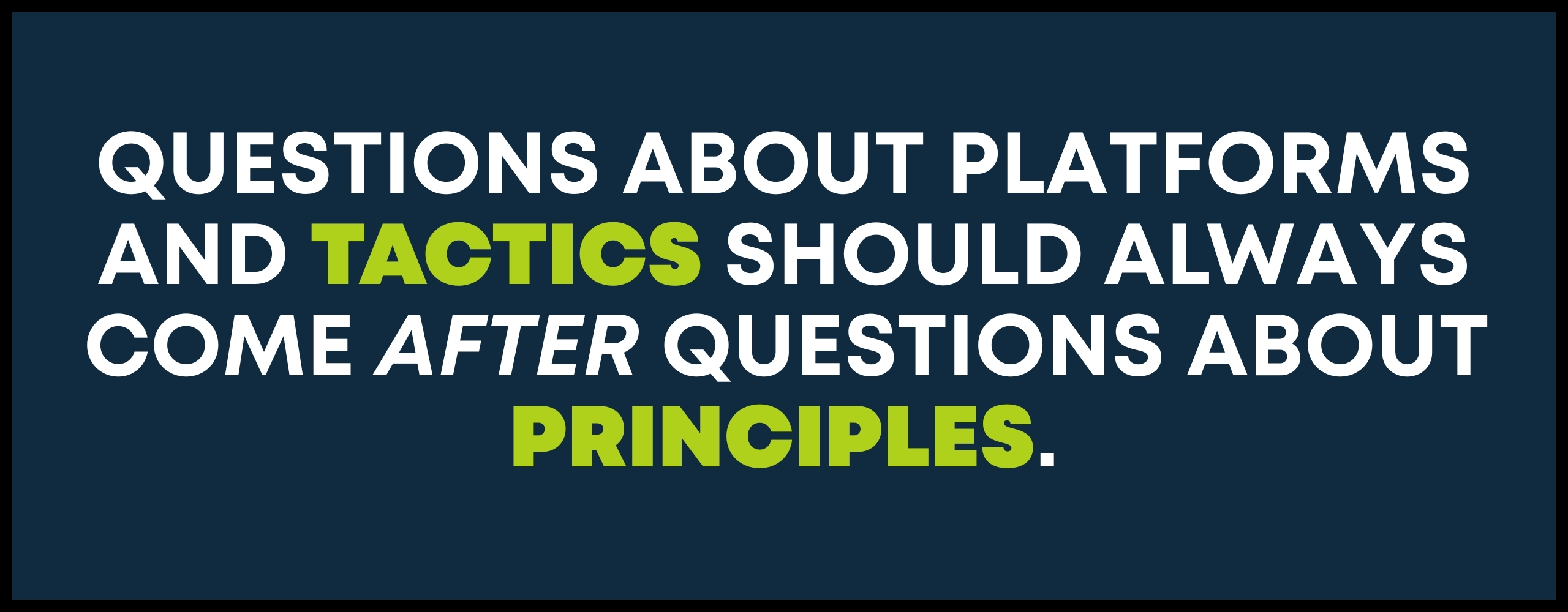
Once they have that principle as their guiding light, they can start asking the right questions about their marketing:
We want to answer our customers’ questions. Would a blog be a good tool to do this?
We want to build trust. Can we use YouTube to do so?
We’re committed to educating our audience. Can we use TikTok to reach them?
We want to reach more people. Can AI help us scale?
See how those questions sound much better?
Content marketing is changing under our feet: More content, more platforms, more noise. But we don’t meet the challenge by chasing trends.
We meet it by holding fast to our principles and serving our audience.
The goal of content marketing should always be education
Buyers want information. When they’re getting ready to make a purchase, they want to know that they’re making the right choice and getting a good deal.
What they don’t want is a sales pitch.
The beauty of content marketing is that the internet can seamlessly connect buyers and sellers.
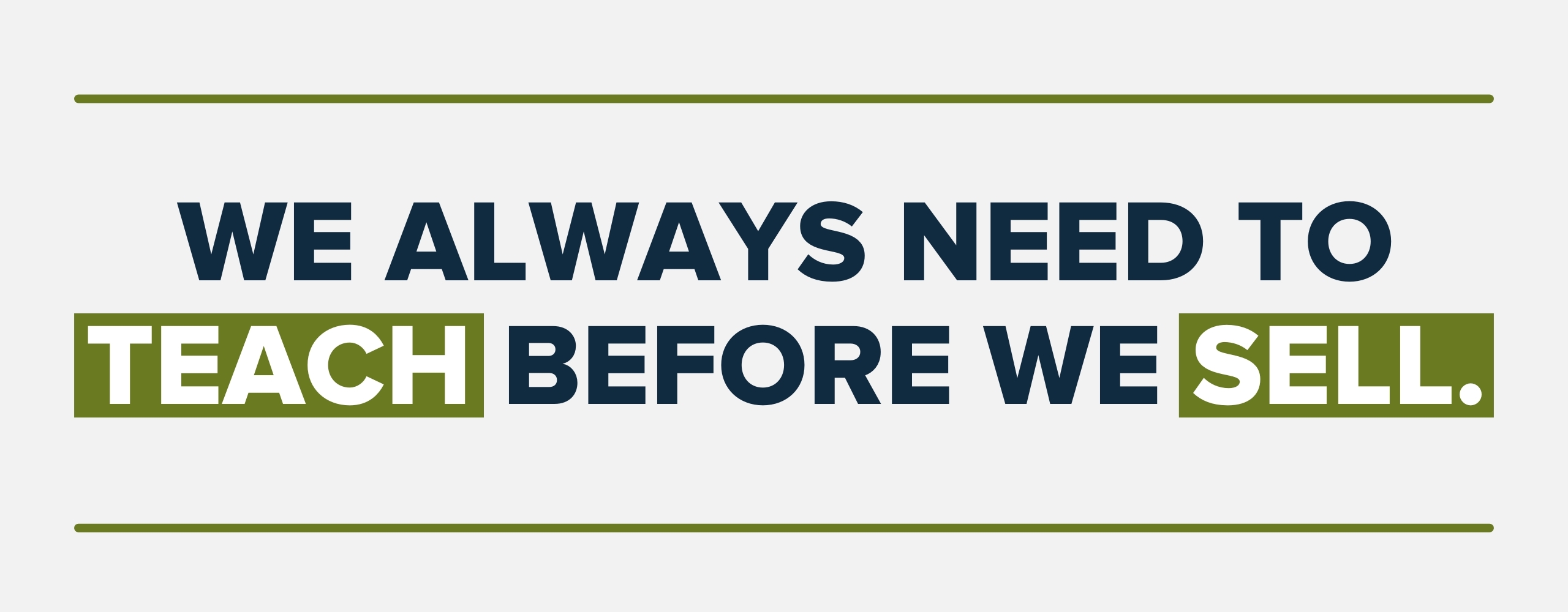
But we shouldn’t just think of ourselves as sellers. We should think of ourselves as educators.
We always need to teach before we sell, helping potential customers understand their challenges and the raft of solutions available to them.
…but you need to determine where and how to educate
With that said, there are more avenues for buyer education than ever before. If you’re just publishing blog articles and hoping hordes of qualified traffic will come to you, you’re limiting your potential reach.
At the same time, customer behavior is getting harder and harder to track, making traditional metrics less reliable.
Smart marketing teams are taking all of this into account when they plan their upcoming strategy.
Content marketing is getting harder to measure
Content marketing has relied on the same metrics for years, but these are getting harder to track, predict, and measure.
Measuring traffic ON your website
It used to be if someone visited your website, you’d get data on the visit. But it’s not as simple as it once was.
Traffic data is less reliable than it once was.
- Cookie tracking is more problematic than in the past. Cookie banners pop up when someone visits a site. If they opt out, you can’t collect their user data. (There are a lot of competing studies about how many people actually do opt out of cookies, but it’s at least some.)
- Searchers are using multiple devices (and, by extension, multiple email addresses) when they go through your site. They might be on your mailing list with one Chrome profile and then check your site the next day with a different browser.
- The rise of Generative search is resulting in fewer top-of-the-funnel clicks to your website.
All of this means that the revenue attribution models we’ve used for years are getting more faulty.
Measuring engagement OFF of your website
But your website isn’t the only way people are engaging with your brand. In fact, if you’re like most businesses, your website is playing a smaller role than in years past.
More and more, buyers are interacting with your brand without ever setting a foot on your website. They might only engage with you on Facebook or LinkedIn, for instance.
That means no landing page conversions, no cookie tracking, and no lead scoring. And while social platforms do give us data, we don’t always get the numbers we want.
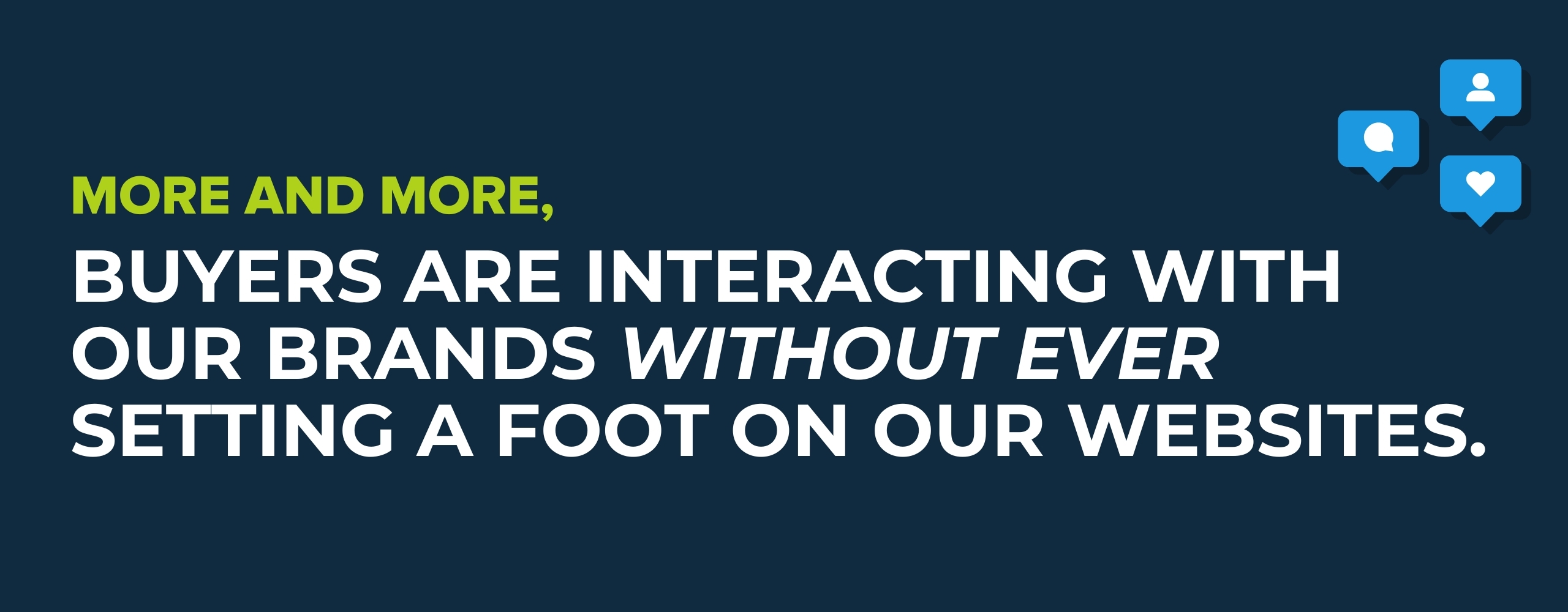
According to HubSpot’s State of Inbound report, social media has topped SEO as the top focus for digital marketers going forward.
Focus on content distribution
All of this means that content distribution is more important than ever. Again, if you’re publishing a blog post to your website and waiting for it to rack up traffic, you’re only fighting half the battle.
Put as much effort into sharing and promoting your content as you do creating it.
Think of other ways you can use the subject matter from a blog post to reach your audience.
You could:
- Convert that blog topic into a podcast to post on Spotify
- Turn it into an Instagram Story
- Publish the blog on Medium
- Compress it into a 30-second YouTube Short
- Create a LinkedIn swipe post
- Present it at an industry event
- Talk about it as a guest on another podcast or roundtable
- Build a self-selection tool to help buyers apply the content to their own needs
You get the idea.
None of this is new, but it will be more and more important going forward.
Not every one of these will make sense for your business. You’ll have to figure out where your audience spends its time. But once you do, try to repurpose your content so that you can reach and educate more people.
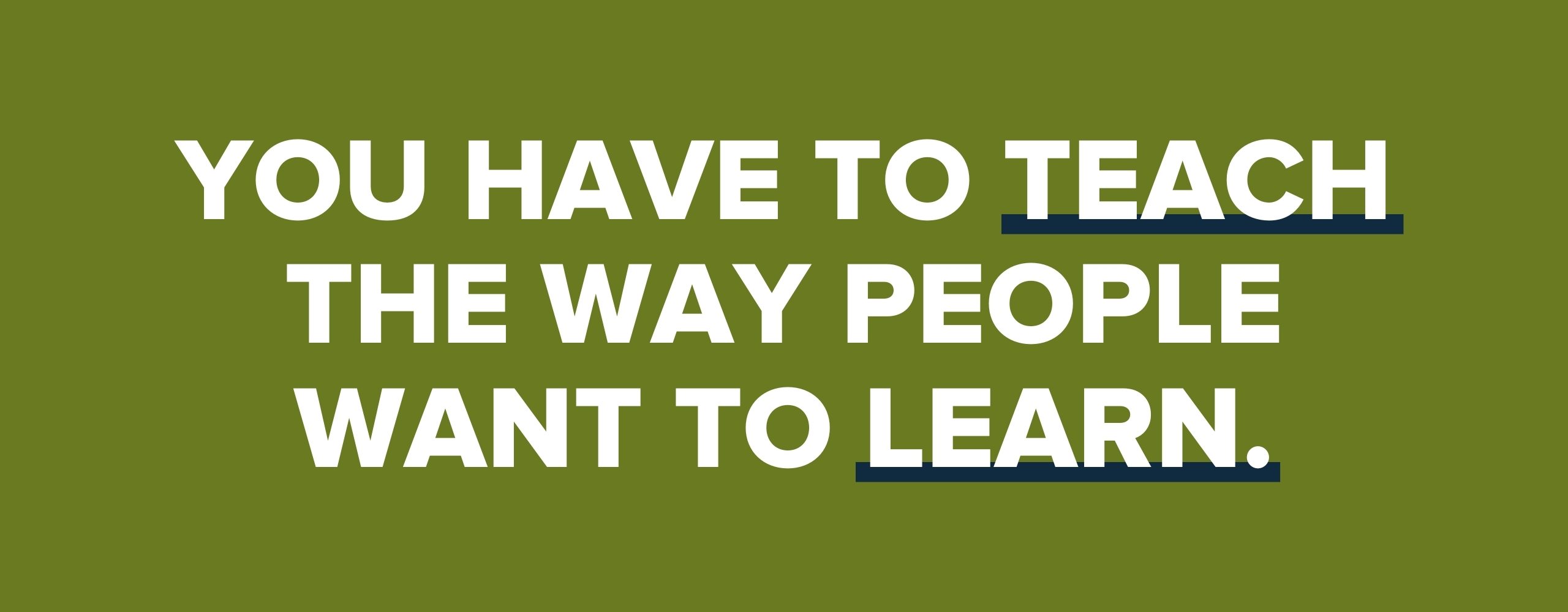
As I often tell clients: You have to teach the way people want to learn. That means using different mediums and different platforms to reach them.
Beware of building on borrowed land
All that said, remember the old saying: Don’t build on borrowed land.
There’s a risk involved in housing your content on a site you don’t own. As we’ve seen over the past few years, platforms rise and fall — taking fortunes with them.
A few years ago, there was all this buzz about advertising on Snapchat. At that point, no one had ever heard of TikTok. Today, Snapchat use has started to decline (according to Statista) and TikTok is exploding.
But there have been calls for bans of TikTok over privacy concerns.
A few years from now, what will be the next big thing? Will TikTok still be on top? Maybe, maybe not.
But if you’ve tied your fortunes to a particular platform, watch out. Things can change quickly.
Keep your ear to the ground and keep reevaluating your approach.
And don’t think that any of these new developments should mean you give up on your blog. In fact, it’s your blog that should be the basis of any new venture.
The new meaning of a company blog
So what’s the role of the humble blog in 2024 and beyond? Yes, the landscape is changing, but I have unwavering faith in articles, guidebooks, and pillar pages as a powerful way to educate your audience. As Donald Miller says, it's words that sell things.
In 2024, the blog will play some new roles:
- Blogs will still drive traffic. For our clients, their written content draws traffic and serves as a lead magnet, just as it always has. Blog articles, after all, are great for educating and building trust with your audience. But this will decline over time for all the reasons stated above.
- Blogs will help educate buyers in the sales process. Written content will help enable sales through assignment selling. When marketing and sales teams work together, they end up with better content and a smoother buying experience.
- Blogs will become your company's reference library.
Your blog: your company’s new reference library
Today, your blogs, guidebooks, and other content will serve as the reference library that supports all your efforts on other platforms.
Think about your blog as standing behind all the other content you’re putting out there onto other platforms.
Someone watches a YouTube video. If they want to learn more, they come to your blog.
If a LinkedIn post summarizes an idea, your blog covers that idea in depth.
The podcast gets them interested, your blog fully educates them.
At IMPACT, we teach our clients to organize their content into a Learning Center that’s sortable and easy to navigate, just like any good reference material.
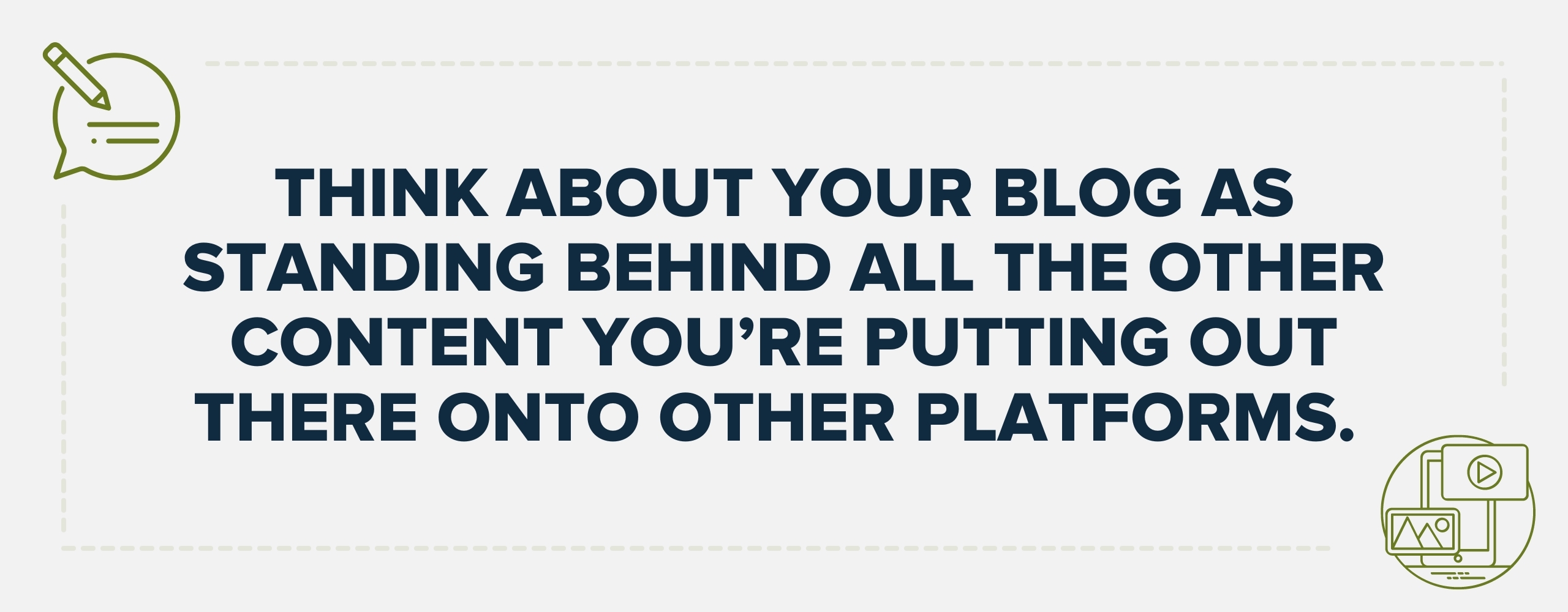
Your would-be customers will find you on other channels, then come to your site, find what they need, and keep developing their relationship with your brand.
Remember: principles come before tactics
2024 is an exciting time for content marketing. You can reach a bigger audience on more platforms than ever, but don’t let the appeal of something new cause you to abandon the basics.
Keep building the core content library that will underpin all of your other efforts. And be sure you stick to your principles. Content marketing is about education. Education is about helping customers and building trust.
If you use those principles to guide everything you do, you’ll use any new tools or channels to amplify your voice and help more and more people.
To learn more about how we’re helping businesses navigate this ever-changing landscape, join one of our free monthly consulting sessions where we cover topics vital to modern sales and marketing.


Order Your Copy of Marcus Sheridan's New Book — Endless Customers!